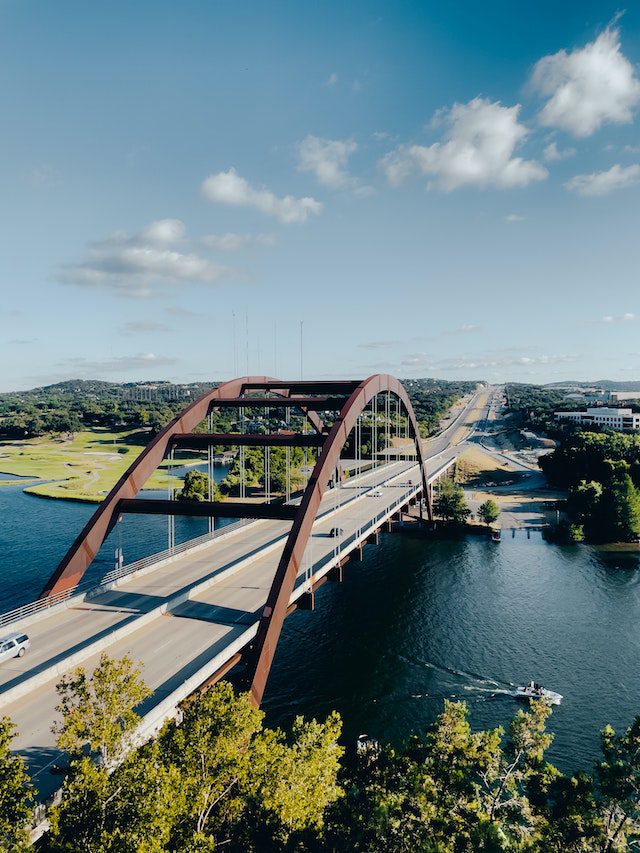AFIRE News

Jeffrey Kanne, president and CEO of National Real Estate Advisors, sits down with podcast host Gunnar Branson to talk about the “new railways” of real estate: data centers.

Some recent research argues that more direct approaches to real estate investing can more effectively address the characteristics, opportunities, and risks associated with the current state of commercial real estate.

Mark Zandi, Chief Economist for Moody’s Analytics, joins Gunnar Branson and the AFIRE Podcast to talk interest rates, CRE, what’s next for the global economy.

Some recent research argues that more direct approaches to real estate investing can more effectively address the characteristics, opportunities, and risks associated with the current state of commercial real estate.

Anticipated moderation in new developments and the positive outlook for rent growth signal a more balanced multifamily market. Until then, investors should maintain a strategic and long-term perspective.

Anticipated moderation in new developments and the positive outlook for rent growth signal a more balanced multifamily market. Until then, investors should maintain a strategic and long-term perspective.

Bridge Investment Group’s 2024 Outlook suggests that, to navigate the curve for the year ahead, accelerate through the turn and find the appropriate entry and exit points, rather than trying to perfectly time the market.

The AFIRE Investor Survey: Fall 2023 Pulse Report, underwritten by Holland Partner Group, provides key insights into the commercial real estate strategy of global investors.

Martha Peyton, CRE, PhD highlights the current state of the market and calls for modest growth and retreating inflation 2024.

New York Life Real Estate Investors discuss trends in rising operating expenses for various commercial real estate asset types.

The question must be asked – will rising insurance and other expenses put a brake on development in high-growth regions?

For the past several years, real estate industry watchers have hailed insurance costs as the canary in the coal mines of climate change. With global temperatures continuing to rise at a geologically unprecedented pace, the canary remains in flight.

Summit Journal: Issue 14 provides insights for the office, multifamily, industrial, and the coming challenges of 2024.

AFIRE requests responses from all AFIRE member organizations for the new Q1 2024 AFIRE Investor Survey, underwritten by Holland Partner Group. Deadline: February 2, 2024.

The year 2023 has been the hottest year in recent record—and it will likely be the coldest year for the rest of our lives.

The year 2023 has been the hottest year in recent record—and it will likely be the coldest year for the rest of our lives.

ome investors tend to think that diversification comes down to merely investing in different asset classes, but an effectively diverse portfolio will include assets with low and preferably negative correlation.

The leading political and economic position of the US is currently under threat by global competition, but key trends in demography and innovation could change the equation.

A cradle-to-cradle ESG risk management approach, including analyses of climate and governance risks, and potential financial impacts, can future-proof strategies and processes.

An upswing in occupancies and rents has taken root, and the key age demographic is on the precipice of what is anticipated to be unprecedented growth.
Media Coverage

Deep-pocketed international investors rank Boston as tied for the second-most desirable U.S. region in 2022, according to a survey by the Association of Foreign Investors in Real Estate (AFIRE).

Favored Property Types Include Multifamily, Life Science and Industrial, According to Annual Survey

The survey shows U.S. CRE continues to be an attractive target for global investors. But they are switching up their strategies in response to post-pandemic trends.

Secondary and tertiary cities are poised to be foreign investor favorites over the next decade in the aftermath of the COVID-19 pandemic, as changing consumer preferences continue to influence how capital is deployed.

For thirty years, AFIRE (Association for International Real Estate Investors) has conducted an annual survey to understand the goals, challenges and long-term thinking of international investors in U.S. real estate. Show host Michael Bull interviews AFIRE CEO Gunnar Branson on the results and insights from this year’s survey.

AFIRE released its 2022 International Investor Survey Report, underwritten by CBRE and Holland Partner Group. Austin, Atlanta, and Boston emerge as the top three cities for planned global investment in 2022, according to the report.

Especially since the Centennial Olympic Games 25 years ago, Atlanta has fancied itself an international city and player on the global stage. A new survey suggests the world shares in that opinion, at least in terms of valuable real estate.

New research from the Association of Foreign Investors in Real Estate may show that global buyers with long-term goals still have an appetite for U.S. real estate.

“The No. 1 most significant finding was the overwhelming support for environmental, social, and governance criteria,” Branson says.

Earlier this year, the AFIRE International Investor Survey found that more than six in 10 respondents expect to increase their investment in tertiary cities in the next three to five years.

Strong growth prospects and less intense competition is leading cross-border investors to secondary and tertiary markets.

The Association of Foreign Investors in Real Estate (AFIRE) surveyed investors and found that many intend to increase investment volume in the U.S. this year.

The responses from our investors mirrored the results from a survey released in May 2021 by the Association of Foreign Investors in Real Estate (AFIRE) […]

For over 30 years, AFIRE has surveyed institutional investors from around the world The results from March’s survey are especially optimistic and very revealing.

During this week’s episode of Leading Voices in Real Estate, Gunnar Branson, CEO of AFIRE, speaks with Matt about current issues facing the CRE business, including his thoughts on what is driving foreign capital into US real estate right now as we are moving forward from the COVID crisis.

According to a recent article in the Austin Business Journal, The Association of Foreign Investors in Real Estate (AFIRE) ranked Austin as the top market in the U.S. for foreign investors in 2021.

For instance, in AFIRE’s, the Association of Foreign Investors in Real Estate 2021 survey, the percentage of investors expecting to put more money into US CRE was much larger than for Europe (17%), Asia-Pacific (9%), the UK (7%), Canada (5%), or Australia and New Zealand (3%).

Gunnar Branson, CEO of AFIRE, Association of Foreign Investors in Real Estate joins show host/investment sales broker Michael Bull, CCIM to discuss highlights from their annual survey/report, the 2021 AFIRE International Investor Survey Report.

In a recent poll published by AFIRE, overseas real estate investors preferred Dallas over almost every other US city to buy real estate in 2021; it lands on number 3.

AFIRE found Austin, Boston, and Dallas as the top U.S. cities for planned investment in 2021.
